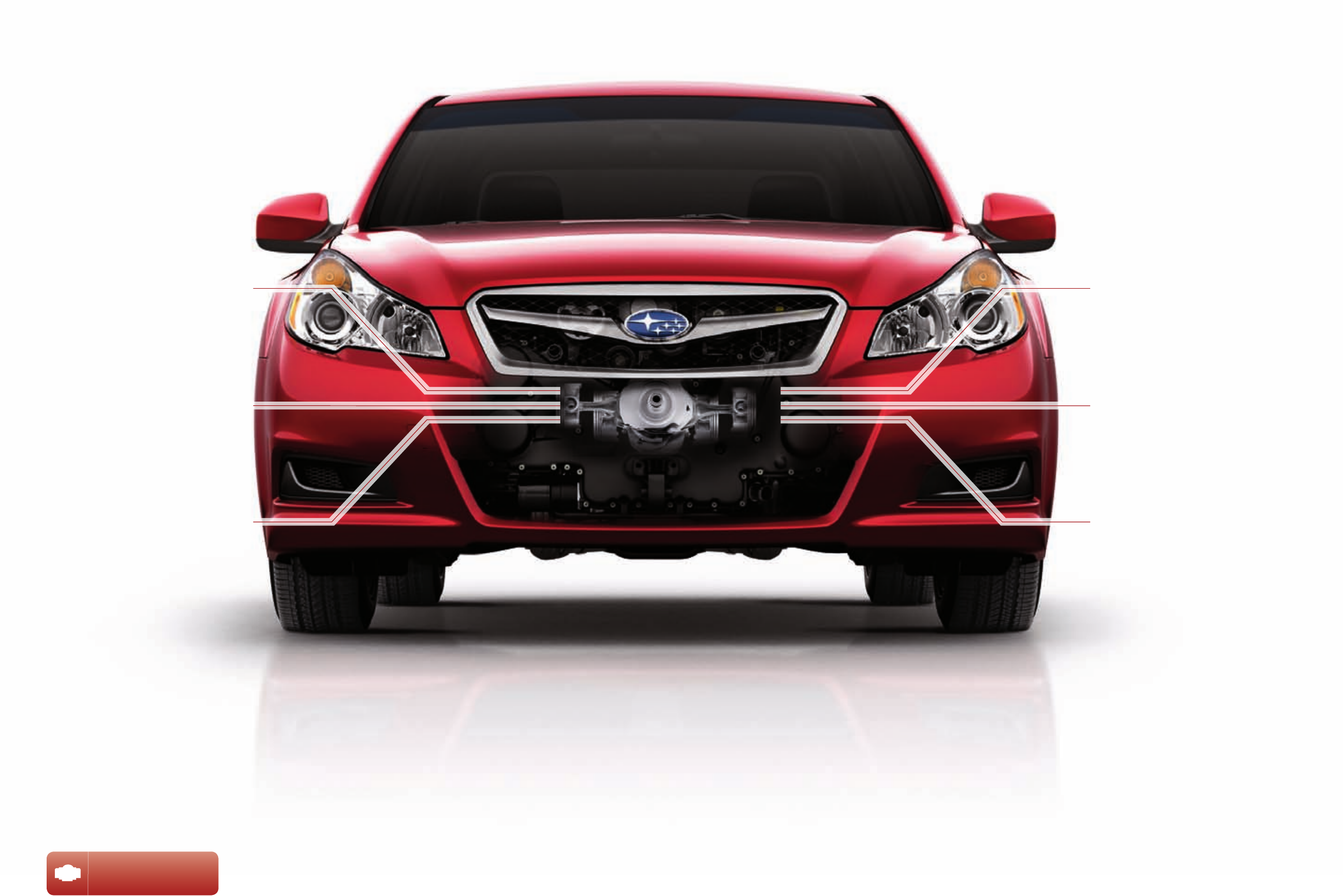
>> >>
>> >>
>> >>
Find out more about
how our engine compares.
subaru.com/boxer-engine
9
Horizontally Opposed Design
The pistons move in 180-degree opposition
to each other on a horizontal plane, so
each naturally cancels out the vibration of
the piston opposite it.
Smoother Operation
Step on the accelerator and the revs come
on smooth. While there’s plenty of power
when you need it, it never compromises
your comfort or control.
Durable Design
The engine’s flat design is inherently rigid,
and reduces the amount of vibration that
“V” or inline engines—with more upright
pistons—are subjected to during operation.
Increased Reliability
An engine subjected to less vibration lasts
longer. It’s no wonder 94% of Subaru
vehicles built in the last 10 years are still
on the road today.
1
Lower Center of Gravity
The flatter profile and perfectly symmetrical
design of the engine block, and the fact that
it sits lower in the chassis, make the overall
vehicle more stably balanced and resistant
to side-to-side motion than other designs.
Greater Agility
The vehicle responds more quickly to changes
in direction, which gives a feeling of tightness
in turns. And it’s less likely to become unstable
during maneuvers, giving you an increased
feeling of being in control at all times.
1 Based on R. L. Polk & Co. registration data in the U.S. 1998 to 2008.
Subaru Boxer Engine
We think about engines a little differently. We believe an engine should deliver
both power and control. That way, it performs as well in rush-hour traffic as it
does on a winding road. That’s why every Subaru is powered by the SUBARU
BOXER
®
engine. Its horizontally opposed design and symmetrical layout provide
powerful, yet smooth acceleration, but also give drivers balance and stability
that set it apart from engines with a “V” or inline configuration. It’s an insightful
difference that has the power to make driving more engaging.
on good ideas.
An engine that runs
Legacy 3.6R in Ruby Red Pearl.


















